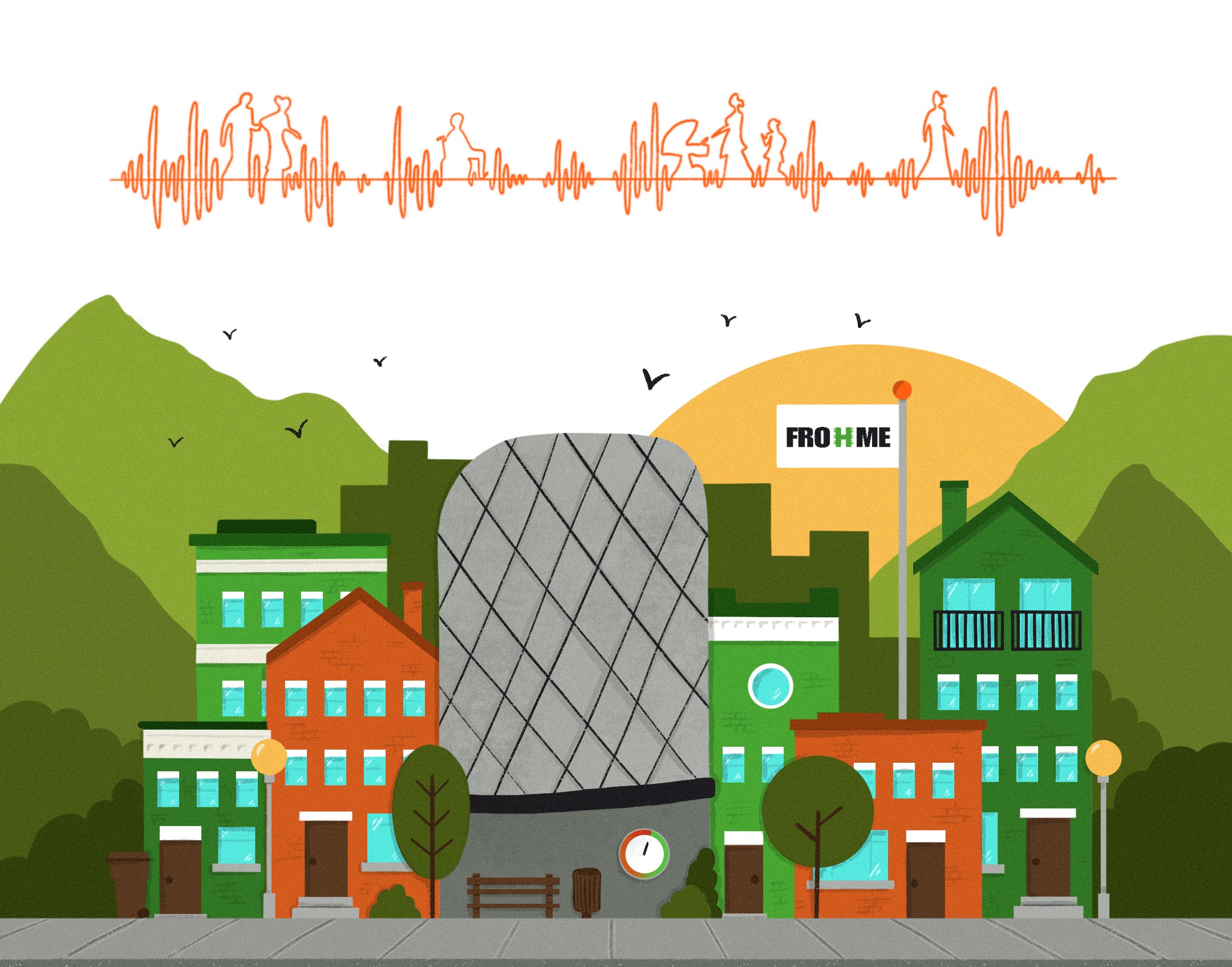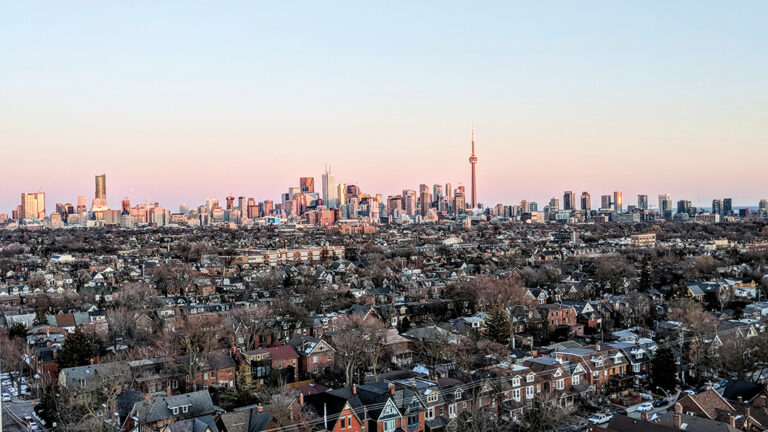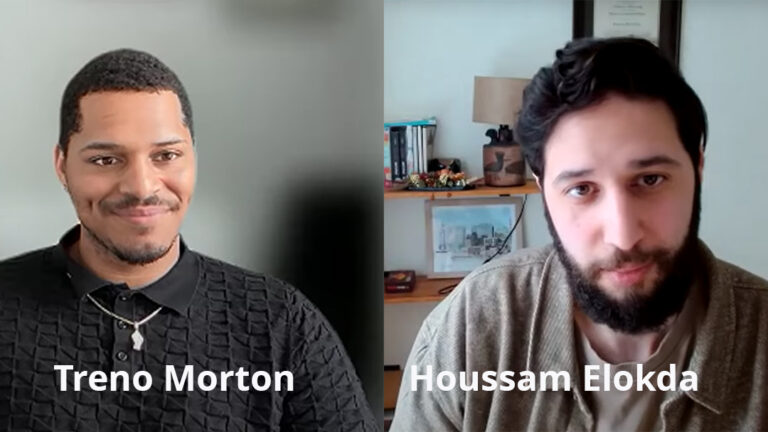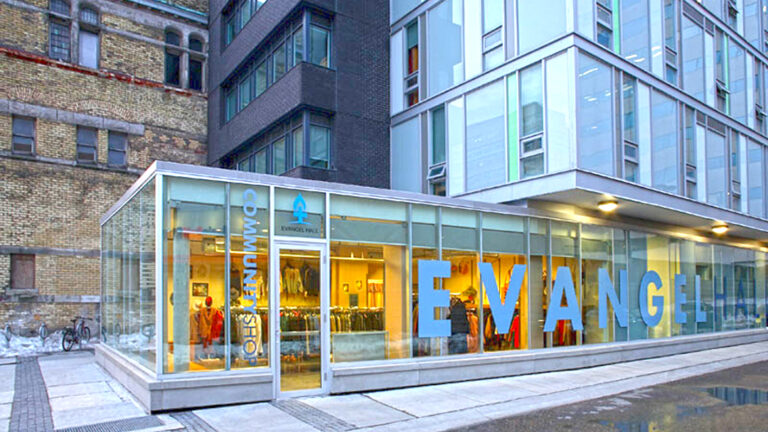Tenants in two Quebec regions are using the power of podcasts to reach out to their fellow renters — and the public — to inform them about their rights and about the role of social and community housing in providing affordable and accessible places to live. With four episodes already aired, Nos voix pour des toits is empowering tenants and giving them an important voice.
How can we raise awareness of social and community housing, make elected officials and the general public aware of the housing crisis, and actively involve tenants in the process? The Fédération régionale des OSBL d’habitation de la Montérégie et de l’Estrie (FROHME) has found a particularly exciting way to achieve these goals by creating the podcast Nos voix pour des toits (literally, voices for roofs).
“This is my first podcast. I didn’t even know what a podcast was!” Heather Carson, who volunteers on the project, explains in a Zoom interview. “I find it super enriching and I love it au boutte!” she adds. Heather’s enthusiasm is contagious. We feel it and, above all, we hear it as we listen to the Nos voix pour des toits episodes in which she participates.
Nos voix pour des toits is a podcast series consisting of eight-episodes of about 45 minutes each, designed and produced by FROHME and involving tenants. It deals with social and community housing and the housing crisis in the context of these two Québec regions (the Eastern Townships and the Montérégie), but also more generally with concepts that affect the entire province.
Heather lives in housing managed by the non-profit Aux Baux Soleils in Châteauguay, about 20 km from Montréal. She is “all-in,” says Marc-Olivier Cholette, who produces the podcast project. “For real. She is everywhere, on many committees, on boards [including FROHME]. She really cares about this.”
“This” is social justice and the desire to help. Heather’s personal journey first led her to living in a housing co-op and then to return to the private market before running into trouble. “I was on the street completely, I had no housing, nothing. I don’t even know what I did to get in here,” she says about Aux Baux Soleils. “I did the application, they called me, I did the interview, they took me. Since then, I’ve been 100% involved.”
Heather feels lucky to have subsidized housing. “There are so many people who need housing and have none. I really care that everyone has a nice, low-cost home. I’d like everyone to have that privilege.”
Information
The first episode, posted in June, covers the history of social and community housing in Québec. The second is about the housing crisis. The third, released at the end of October, talks about the role of municipalities in social and community development. The fourth comes out this month.
The production schedule calls for an episode every two months, but with a wealth of ideas for interesting content, they decided to produce a few off-series episodes.
The project is well documented and involves invited guests, such as municipal and provincial politicians or leaders in the social-housing sector, such as François Saillant, former coordinator of the Front d’action populaire en réaménagement urbain (FRAPRU).
The podcast has two major missions, notes Cholette. First, to popularize and promote social housing, and especially to counter persistent prejudice against it. Second, to demystify the way non-profit housing operates and to provide information to tenants of all types of housing, including about their rights.

The project relies on the participation of volunteers, most of whom reside in non-profit housing. At the moment, the committee, which is constantly evolving and still accepting participants, is majoritarily female and around 15 of them volunteer their time according to their availability. They are involved in various stages of the episodes, including ideation and research. Then, accompanied by Cholette, they record their voices.
The first time Heather spoke into the microphone, “I was so excited,” she says. “I felt important.”
The Community Housing Transformation Centre provided $110,000 to the project through its Community-Based Tenant Initiative fund.
Cholette says the podcasts have been heard about 3,500 times so far, and the audience grows with each new episode.
… and empowerment
Pierrette Pierre-René is another podcast participant. After losing her job while on maternity leave, she wanted to move from Montréal to Châteauguay, where she, too, found Aux Baux Soleils.
It changed her life.
“For me, coming to Aux Baux Soleils is like a fresh start. Not only did it save me a lot of money, [but] I went back to school [and] it allowed me to go back to work.”
Prejudice against people living in social housing, which the podcast battles, is something Pierrette knows from experience.
“I felt judged because people were judged. Not only do we judge ourselves, but we also judge others. [At first] I came and left from the back of the building. I limited contact,” she admits.
“It’s really this year, with the podcast, that I can say that … I’m in my place. I have nothing to feel bad about, and why would I be embarrassed? I am proud to have been asked to participate in the podcast. It warmed my heart.”
Pierrette also felt it was important to talk about her reality as a woman of colour and to share her experience, which was positive. “I wanted to break the barriers. There are really good stories, really accomplished people…There’s nothing wrong with living [in non-profit housing]. It doesn’t mean you can’t make it on your own.”
***
You can listen to episodes of Nos voix pour des toits (in French only) on various online listening platforms by clicking here.



